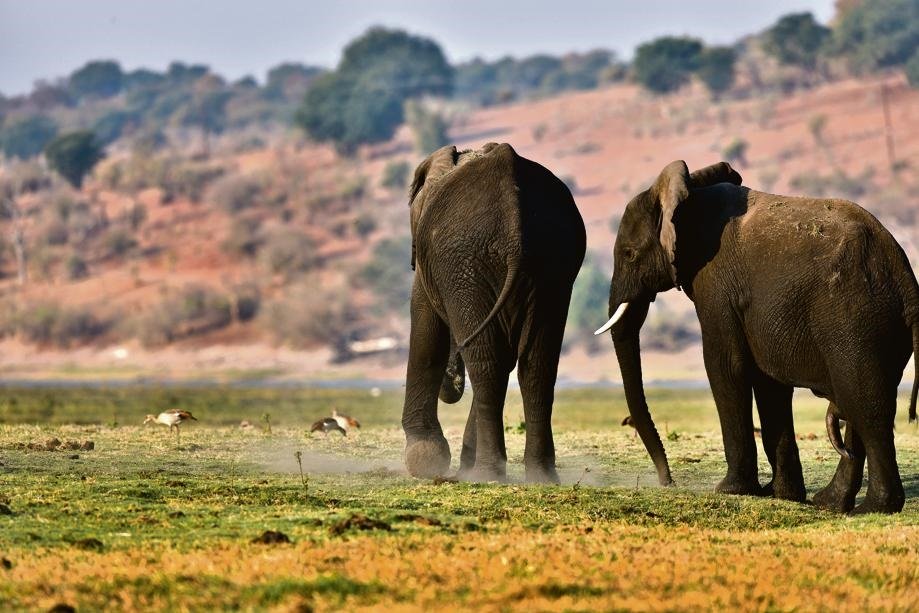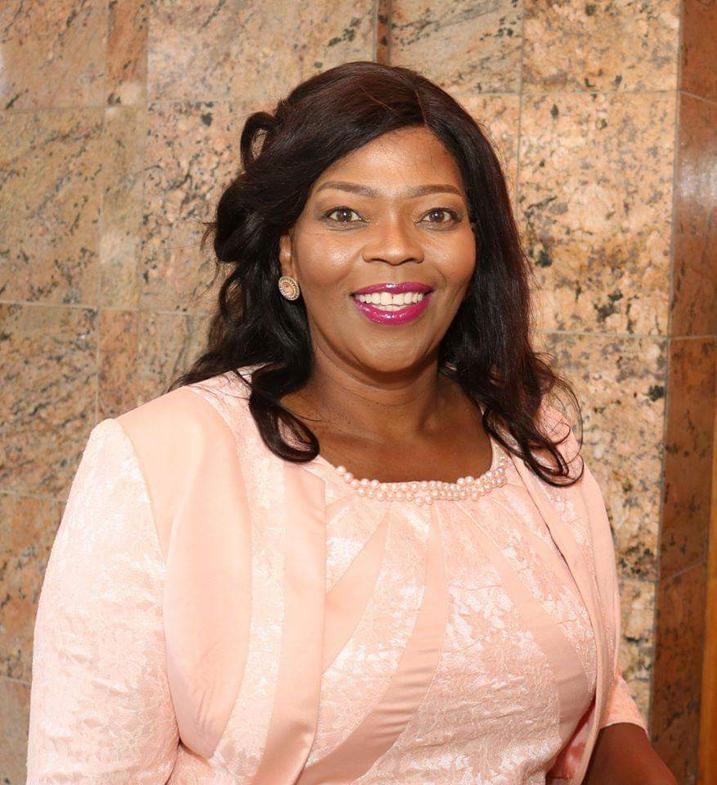

‘Should we rather kill people and leave elephants to run Botswana? We have to look at wildlife against people’s livelihoods. Hunting … protects human life and wildlife’.
From April onwards, hunters – mainly from abroad – will start descending on diamond-rich Botswana, although they will not be after the country’s precious stones.
In fact, they will conduct their activities away from the mining areas.
They will land somewhere in the midst of the landlocked country’s natural terrain, where its vast and rich flora and fauna thrive – earning it the moniker, African paradise.
High-calibre firearms, powerful enough to send a bullet piercing deep into the thick skull of an elephant – in the process, paralysing the pachyderm until it takes its last gasp of air – will be loaded and ready.
Then somewhere in the wilderness, shots will be fired and elephants will trumpet in agony, their cries echoing through the vast swathes of bush.
In the end, 60 elephants will be killed.
This, says the government of Botswana, is about the “sustainable management of wildlife”, given that it needs to consider the welfare of its citizens as well as the conservation of its rich biota.
But for conservationists and animal rights activists, this is animal cruelty, along with gross injustice being inflicted on the wildlife and on wildlife conservation.
They say this policy will destroy the idyllic oasis and wildlife sanctuary that is Botswana.
The southern African country came under widespread criticism in May last year, after lifting its five-year ban on trophy hunting.
When it comes to this activity, government is directing its focus mainly on hunting elephants.
This, in a country that boasts Africa’s largest elephant population – about 130 000 – against its carrying capacity of about 50 000.
Government initially considered the option of instituting the “limited culling” of elephants, and having their meat canned in order to be used as pet food
The rescinding of its anti-poaching policy came after various consultations with communities.
These talks were prompted by the mammals increasingly encroaching on human habitats, resulting in human-wildlife conflicts that left people dead or injured from elephant attacks and their crops destroyed.
Government initially considered the option of instituting the “limited culling” of elephants, and having their meat canned in order to be used as pet food.
In the end, it decided to return to its policy of controlled hunting.
THE WRATH OF WILDLIFE ACTIVISTS
Six hunting packages, of 10 elephants each, were made available by way of an auction held in Gaborone
This decision was greeted by outrage from conservationists and animal rights activists worldwide.
They flooded social media platforms, placed the issue in the international media spotlight and signed various petitions in a bid to stop the policy from being ratified.
About nine months later – last week, to be precise – their fury reached fever pitch as Botswana implemented its decision and allowed the first 60 out of 276 elephants to be hunted. This is part of the shooting quota it has issued for 2020.
Six hunting packages, of 10 elephants each, were made available by way of an auction held in Gaborone last week.
The six month-long hunting season starts in April.
It is assumed that the game chosen will sink to their deaths at the first shot, much to the hunters’ delight.
But researchers say elephants do not always die at the first shot.
In fact, they warn, it is hugely risky to walk to an elephant after it falls to the ground, and shake it or check for a pulse.
Not even a person with a firearm can trust an elephant, even when it is on its knees or lying on its side.
A follow-up shot in the right place is recommended to ensure that the beast is no longer.
Once the hunters are satisfied that their targeted animal is dead, so-called show-off photos will be taken alongside the carcass.
Thereafter, the process of harvesting whatever the hunter wants, from the elephant’s highly valued ivory tusks to its skin, can begin.
Lobby groups worldwide have spoken out against such wildlife hunting and are actively canvassing for elephants’ rights.
Last week, on the day of the auction, Kitty Block, a conservationist and CEO of the US-based organisation Humane Society International, wrote on her blog: “This heartless trade in the very lives of such beautiful and beloved animals, known for their intelligence and for forming deep social bonds within their communities, goes against everything we now know about elephant conservation.
“President Mokgweetsi Masisi has held out wildlife conflict as his reason for restoring the trophy hunts, but conservation scientists warn that poorly regulated trophy hunting can actually worsen such conflicts by disrupting animal groups and creating social chaos among their ranks. There are other peaceful and non-lethal ways to address human-wildlife conflict, including immunocontraception [a vaccination process, rendering animals temporarily infertile].”
Should we rather kill people and leave elephants to run Botswana
Botswana minister of environment, natural resources conservation and tourism, Philda Kereng
Botswana’s government is, however, standing firm.
Asked if erecting fences around the habitats of big game was not an option, the country’s minister of environment, natural resources conservation and tourism, Philda Kereng, said: “We believe fences are going to affect the viability of our animals … Without fences, they can move freely to neighbouring countries, and we think: What do they do when they are fenced in and resources are depleted in their habitat?”
HUMAN LIFE
“Should we rather kill people and leave elephants to run Botswana?” Kereng asked in reaction to the criticism following the recent elephant-hunting auction.
She broke her government’s silence on the debacle for the first time last week, in an interview with City Press.
“When people do not understand what we are going through, they talk about elephants. But if we flipped the coin and said: ‘People have died because of elephants encroaching into their habitats’, what would they say? I mean, right now their silence about [the loss of] human life and livelihoods is deafening, yet they are highly vocal on animals’ rights,” Kereng said.
“Are they saying they do not care about the other side? We appeal to them to come and help us when elephants kill people.”
She also refuted “wrong perceptions” that there was cruelty in the hunting process.
“There are strict regulations, clear do’s and don’ts, and the hunting is done ethically, under the watchful eyes of our officials. People think we just go into the wilderness and shoot at whatever elephant comes into sight … No, targets are carefully identified and hunting is carried out delicately.”
She said the government could “not just fold its arms when human life is increasingly coming under threat”.
She added that, while humans and wildlife had coexisted peacefully for years in Botswana, the climate crisis had changed the status quo.
Drought conditions had struck Botswana, affecting its terrain and resulting in wild animals moving away from their regular habitats in search of water and food.
“Our people have lived together with elephants and other wild animals, without problems, for many years. They love them and never asked to be moved away from them. They know that under normal circumstances, with enough rain, life goes on nicely, without animals encroaching on their space,” she said.
Hunting was considered by Botswana’s government “as a sustainable management of wildlife”, she added.
“We have to look at wildlife against people’s livelihoods. Hunting is a wildlife management practice to protect both human life and wildlife numbers.”
Once quotas are issued, communities will partner with professional hunters, who may be non-Batswana. Once the elephant is bought, the proceeds will be used for community development projects as well as conservation programmes
Botswana minister of environment, natural resources conservation and tourism, Philda Kereng
COMMUNITY BENEFITS
Kereng said communities were the main partners of government in this process.
Community trusts would form joint ventures with buyers, who would then go on to sell the identified elephants mainly to international trophy-hunters.
They, in turn, would sell the ivory internationally.
“Once quotas are issued, communities will partner with professional hunters, who may be non-Batswana. Once the elephant is bought, the proceeds will be used for community development projects as well as conservation programmes,” she said.
Kereng said that despite the public outcry, tourism – a sector with a high employment rate in Botswana – had not been affected.
“More and more people are still interested in coming to experience our rich wildlife, despite all the negative reports on hunting and cruelty to animals. We are doing what we have to do for the good of our wildlife in general as well as its conservation, and for human lives and livelihoods. We have not yet experienced any decline in tourist numbers.”
  |
|

